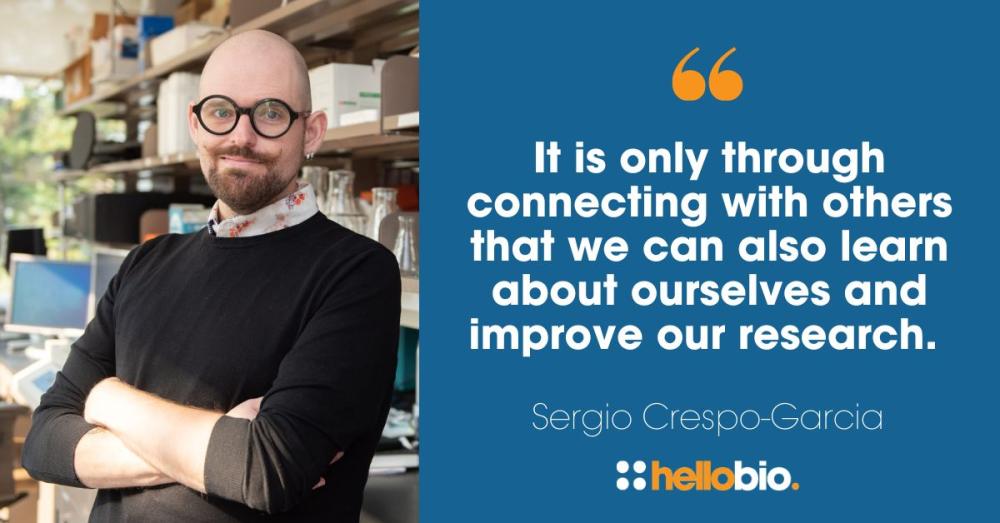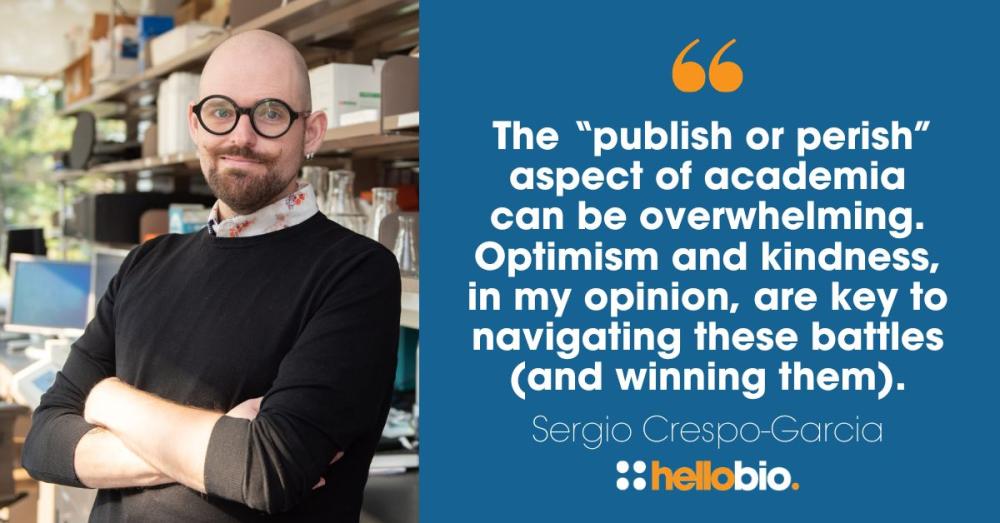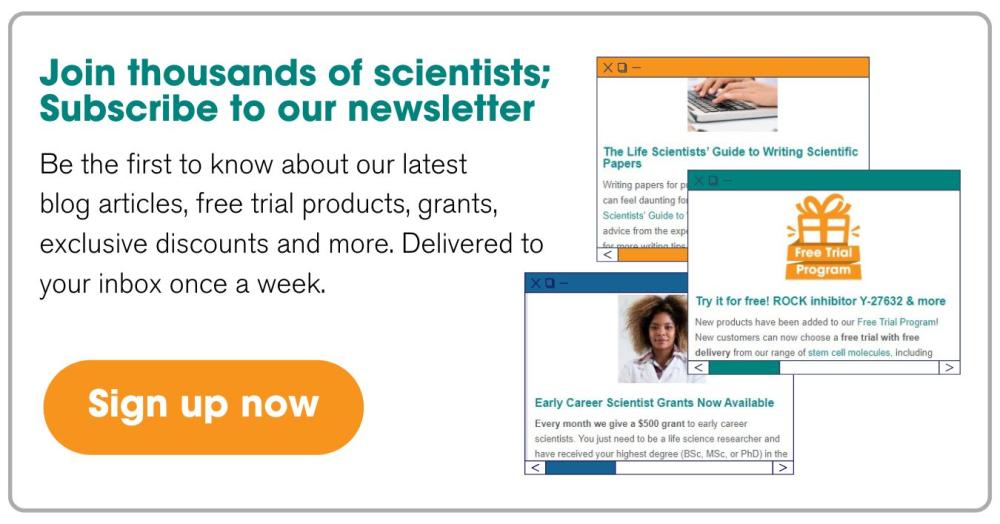Meet our Early Career Scientist Grant Winner Sergio Crespo-Garcia
It’s time to meet our latest Early Career Scientist Grant winner! Sergio Crespo-Garcia of the University of Montréal in Canada, and is the newest recipient of our £500 career development grant!
Each month we’re proud to award one lucky life science PhD or postdoc with a grant that can be used to cover travel expenses to a conference, publishing fees, lab supplies, or anything else that will help to advance the research of an early career life scientist.
Sergio is an assistant professor working at the School of Optometry, and will use the grant to help fund his trip to the CNIC Conference: “Cardiovascular Risk Factors and Brain Health” in Madrid, Spain, in June 2024.
We asked Sergio how he felt about receiving the award, and he told us:
It is absolutely fantastic to count on the support of Hello Bio to pursue the adventure of being a scientist. This is a much-needed initiative and has an enormous value to early career researchers such as myself. Training and learning through conferences are central activities towards excellence. It is only through connecting with others that we can also learn about ourselves and improve our research. The chance to meet great scientists and share my project at this international meeting will be seminal to improve our investigations and establish new collaborations overseas. Sergio Crespo-Garcia, University of Montréal, Canada, Hello Bio Early Career Scientist Grant winner
Congratulations Sergio! First, can you tell us a bit more about your current research work?
Trained as a retinal cell biologist, I am interested in understanding how different retinal cell types composing the small blood vessels interact with each other. During ageing, or diabetes, these cellular interactions can become defective, and we start to have problems related to circulation and neurodegeneration. My research spins around the understanding of these interactions. We seek to uncover novel druggable targets that will permit us to preserve the function of these cells and prevent or cure vision loss.
What excites you most about your field of research?
Often, we do not realize how much we rely on vision. Not just for reading and driving, but simply for walking down the stairs or doing groceries. Losing vision is a terrible thing, and patients deserve hope when this happens. Working in the field of retinal degeneration is thrilling because of both the challenge and the impact of our work. Ultimately, our research findings aim to prevent and cure blindness, and this is a fulfilling career perspective that cannot be overlooked.
Which scientists working today do you most admire, and why?
As a graduate student, you learn the advances of the field through research publications or attending lectures through conferences or at university. I have met far too many scientists that I admire to list only a few. We are lucky to live in a world filled with so many brilliant minds from whom we can learn so much.
What do you think are the biggest challenges currently facing life scientists and their work?
Life and work balance matters. We can often lose perspective of it, and this is no exception in science. Research is a competitive field characterized more and more by a frenzied race to reinvent things and get paper citations under the motto of “publish or perish”. These aspects of academia can sometimes be overwhelming or discouraging. However, staying in this field also implies having a strong scientific drive and passion. It is in those moments when one must remember why one decided to become a scientist. Optimism and kindness, in my opinion, are the key to navigating these battles (and winning them).
And finally… what’s your favourite science quote?
“Be careful of small things. Their absence or presence can change everything.” - Han Shan
________________________________
Thank you so much Sergio! We wish you all the very best with your future research projects and we hope you have a fantastic time at the conference in Madrid!
Connect with Sergio:
- LinkedIn: Sergio Crespo-Garcia, PhD
- X(Twitter): @SerCresGar
Why not apply for our next monthly grant?
Application is quick and easy, just fill out the form here: https://hellobio.com/early-career-scientist-grant-application
________________________________
If you enjoyed this article, why not check out the other resources available on our blog. We are passionate about supporting life scientists including early career life scientists and PhD students - with really low-priced reagents, antibodies and biochemicals, early career scientist grants, and resources to help with both personal and professional development. We know how tough it is - so we hope you find these helpful!
More General Support for Life Scientists
For advice on wellbeing, dissertations, presenting at conferences, wellbeing, PhD support, networking and lots more, we have a huge range of articles to help - just click below:
Save up to 50% on our high purity reagents...
When you get to the stage of planning your experiments, don't forget that we offer a range of low-cost, high-purity agonists, antagonists, inhibitors, activators, antibodies and fluorescent tools (yes - they really are around half the price of other suppliers!) You can use our Quick Multi-Search Tool to search for lots of products in one go, and the range includes:
- Enzyme inhibitors and activators
- Chemogenetic ligands
- Ion channel modulators
- GPCR & ionotropic receptor ligands
- Cell biology reagents & biochemicals
Technical resources
Try our Molarity Calculator: a quick and easy way to calculate the mass, volume or concentration required for making a solution.
Try our Dilution Calculator: an easy way to work out how to dilute stock solutions of known concentrations
We also offer a comprehensive range of technical resources including antibody protocols and methods, product guides and mini-reviews:
And finally, don't forget to check back in with our blog regularly for our latest articles. If there’s something you’d love to contribute to the community, whether that’s an interview or article, drop us a line at hello@hellobio.com
---























